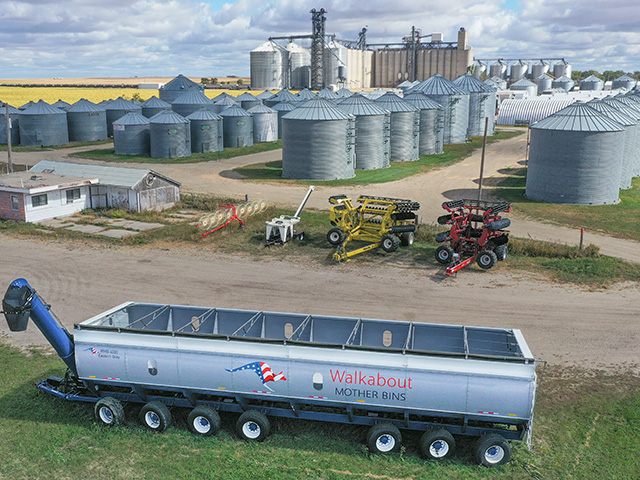Ag Confinement Incidents Down in 2020
Purdue Experts Say Number of Confinement Incidents Still a Concern
LINCOLN, Neb. (DTN) -- The number of accidents and injuries in confined agriculture spaces was down in 2020 compared to 2019, and the number of fatalities came in below historical averages, according to a new report from Purdue University's agricultural and biological engineering department.
The 2020 Purdue findings show there were 64 fatal and non-fatal incidents involving agriculture confined spaces. That represents a 4.5% decrease from 2019. Purdue said 32 of those cases resulted in fatalities, or 50% of all cases. That compares to 61% of all cases historically.
The five-year running average for all cases has decreased from its peak of nearly 76 cases per year in 2011, the report said.
There were 35 grain-related entrapments in 2020, representing about an 8% decrease from 2019. Most of those incidents involved entanglements and falls.
"Regardless, the frequency of documented cases remains a concern considering the substantial resources being invested in solving the problem," the report said.
"The five-year average started to steadily increase in 2002 from 36.8 cases per year to a peak of 75.8 cases in 2011. A significant contributing factor in the earlier increase in the frequency was attributed to better documentation of incidents due to more aggressive surveillance efforts, increased access to case information via the internet, and broadening the array of confined space-related incidents being captured, such as those involving manure storage."
Purdue's data shows Illinois led all states in the number of documented confined incidents with 17. Minnesota and North Dakota were a distant second with seven each, while Nebraska was third with five.
P[L1] D[0x0] M[300x250] OOP[F] ADUNIT[] T[]
"The unusually high number of documented cases in Illinois, more than the next two states combined, was of special interest," the report said.
"One contributing factor may be the consequence of substantial efforts to bring attention to the problem in the state, resulting in more nonfatal cases being identified."
The report said incidents were documented in 20 states in 2020, an increase from 15 states in 2019.
When it comes to grain bin accidents, Purdue said there is a direct correlation between out-of-condition grain and an increased likelihood of worker entrapment.
"When a farmer or elevator employee has to fight to get the grain to flow out of the structure, there is a strong temptation to bypass safe work practices by entering the structure in order to keep the grain flowing," the report said.
"If the grain won't flow, it's already too late to debate what was or was not done to prepare the grain for safe storage, such as ensuring stored grain does not exceed 14% to 15% moisture content, is free of excessive foreign material or insect damage, or is protected from the elements."
The report said there were eight documented grain dust explosions in 2020, resulting in nine injuries and no fatalities. A variety of different grains were involved in the explosions, including corn, wheat, mixed feed, rice and dietary fiber. The documented dust explosions occurred in Kansas, Iowa, Illinois, Ohio, Texas, Nebraska, Missouri and Arkansas.
The Purdue study documented seven manure incidents, resulting in five fatalities and six injuries in 2020. The number of fatalities was down from seven in 2019 and 16 in 2018. Three cases involved manure storage pits or lagoons and eight involved manure transport or hauling operations.
Michigan had the most documented cases with four, followed by New York and Minnesota each with two.
All victims were male, two were children and youth under the age of 18, and one victim was age 64.
Purdue said the data collected may be incomplete. By some estimates about 30% of cases go unreported.
"As noted in previous summaries, there is no claim that the data presented accounts for all incidents involving agricultural confined spaces," the study said.
"Furthermore, there is no accurate accumulative public record of these incidents due to the fact that there is still no comprehensive or mandatory incident/injury reporting systems for most of agriculture."
Read the Purdue report here: https://extension.entm.purdue.edu/…
Todd Neeley can be reached at todd.neeley@dtn.com
Follow him on Twitter @DTNeeley
(c) Copyright 2021 DTN, LLC. All rights reserved.




